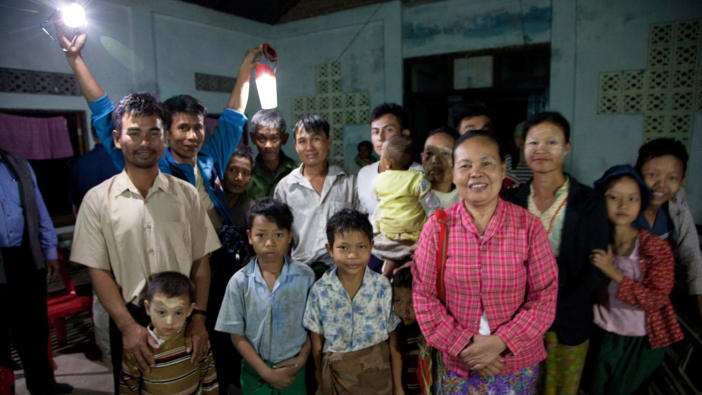Sustainable Development Goal 7 is straightforward: ‘Ensure access to affordable, reliable, sustainable and modern energy for all’. The last two words are key. We can only achieve the goal of clean energy for all if we take into account the needs and hopes of the one in seven people across the world who are living with a disability.
The widespread, global replacement of fossil fuels with renewable energy will help to reduce climate change and its impact on the most vulnerable.
This is particularly important for people living with disabilities who may find it difficult to adapt to changes in the climate or cope with climate-induced natural disasters.
In addition, small-scale renewable energy systems can provide affordable electricity and biogas for communities that are not yet connected to energy grids.
This can open up new opportunities for people with disabilities to access education and training, find computer-based employment or start new small businesses such as sewing workshops. It also allows the use of assistive devices such as electric wheelchairs.
The smoke from cooking fires can cause illness and disability by affecting people’s lungs and eyes, or it can make existing impairments worse. Increased use of cleaner appliances such as biogas stoves or solar-powered cookers will reduce disability and contribute to better health for all.
Electric lights increase safety and security at night and reduce the risk of accidents caused by candles, kerosene lamps and open fires.
Inclusive planning
As increasing attention is given to sustainable energy initiatives and strategies, it is crucial that people with disabilities and their representative organisations are involved in all aspects of planning and decision-making. To help achieve this, project planners should:
- collect information on energy use, needs and the impact of climate change on individuals and communities, paying specific attention to disability, gender and age
- use this information to inform decision-making and advocate for the rights of people who are in danger of being overlooked
- make community meetings accessible for people with different needs and provide project information in multiple formats such as sign language, radio broadcasts and easy-to-read leaflets
- consider providing training to equip people with disabilities for new jobs, eg the maintenance of wind turbines or solar panels.
This will help to ensure that the benefits of affordable, reliable and sustainable energy reach everyone in the community in a just and inclusive way.









